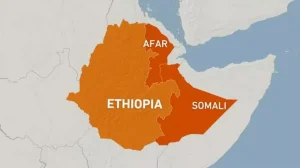
In a thought-provoking address at a high-level consultation on ‘Rethinking Western Liberal Democracy for Africa’ in Abeokuta, Ogun State, former President Olusegun Obasanjo asserted that Western Liberal Democracy has faltered in Africa, primarily because it was imposed on the continent. The ex-President argued that this form of governance, characterized by its representative nature, fails to adequately consider the perspectives of the majority.
Obasanjo characterized Western Liberal Democracy as a system where a select few govern the entire population, representing only a fraction of the people rather than the entirety. He highlighted the exclusion of the majority from meaningful participation, whether intentional or unintentional. Advocating for an alternative he termed “Afro democracy,” he emphasized that African nations should not adhere to a governance system in which they play no role in its formulation and design.
He remarked, “The weakness and failure of liberal democracy as it is practiced stem from its history, content, and context. Once you move from all the people to a representative of the people, you start to encounter troubles and problems. For those who define it as a rule of the majority, should the minority be ignored, neglected, and excluded?”
Questioning the relevance and deliverability of the Western Liberal Democracy model, Obasanjo urged a critical examination of its performance, especially in its place of origin. He called for a departure from blind adherence to a system inherited from colonial powers and suggested introspection to identify elements from African culture, tradition, and practices that could be incorporated into a revised governance structure.
Obasanjo encouraged attendees, including academic leaders and experienced politicians, to transcend conventional thinking and propose innovative ideas to address the shortcomings of liberal democracy in the African context. He emphasized the need for a paradigm shift, urging participants to contemplate a changed system of government that better serves the welfare and well-being of all citizens.
In conclusion, Obasanjo underscored the importance of thinking beyond established norms and leveraging collective experiences to shape a governance model that aligns with the unique needs and cultural contexts of African societies. The consultation aimed to harness the insights of thought leaders to explore alternatives and recommendations for a more effective and inclusive system of governance.






